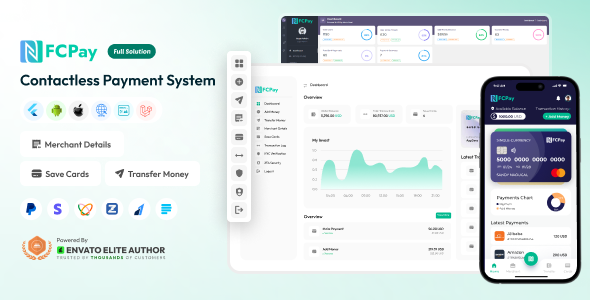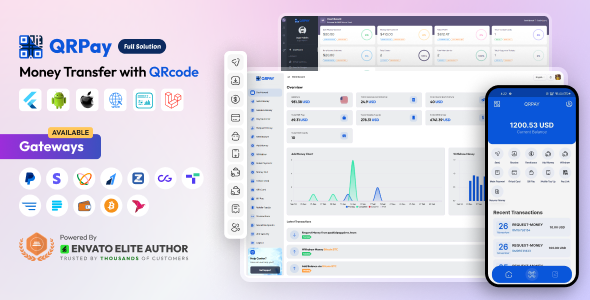Transform Payments with Advanced Digital Wallet Solutions
Revolutionize digital transactions with our feature-rich Digital Wallet Solutions. From secure online payments to fund transfers, our platform empowers businesses, banks, and users to experience a cashless, hassle-free ecosystem. Simplify money management, improve customer satisfaction, and enhance your financial infrastructure with our cutting-edge e-wallet solutions.What Problems Does an E-Wallet Solution Solve?
Cash Dependency
Reduces reliance on cash by enabling secure digital transactions.
Time-Consuming Payments
Accelerates financial transactions with instant payments across platforms.
Security Risks
Protects user data with encryption, 2FA, and fraud detection features.
Limited Payment Methods
Supports multiple payment options, including bank transfers, credit/debit cards, and QR codes.
Inaccessible Banking Services
Provides unbanked users with an easy-to-access financial tool.
Lack of Financial Transparency
Offers detailed transaction history and spending analytics for smarter financial management.
Key Features of a Digital Wallet Solution
A comprehensive e-wallet platform should accommodate both the bank's administrative needs and the functional needs of the end users, ensuring a secure and user-friendly experience for all.
Administrator Features

User Management Dashboard
Control user accounts, profiles, and permissions seamlessly.

Transaction Monitoring
Real-time insights into transactions for enhanced oversight.

Compliance and Security Tools
Integrated KYC/AML processes to meet regulatory standards.

Revenue and Analytics Dashboard
Track earnings from transaction fees and user activity.

Customizable Fee Settings
Flexibility to adjust transaction fees, subscription plans, and promotions.

Support Tools
Efficient ticketing and support system for resolving issues quickly.
User Interface Features

Instant Money Transfers
Send and receive money instantly within the wallet ecosystem.

Payment Options
Pay bills, shop online, or make in-store purchases with QR codes and NFC.

Fund Management
Add money to the wallet or withdraw funds effortlessly.

Savings and Goals
Set financial goals and allocate funds for future use.

Multi-Language and Currency Support
Cater to diverse user bases with global language and currency options.

Personalized Alerts and Notifications
Stay updated with transaction notifications and spending insights.
How Can Businesses Generate Revenue from Digital Wallet Solutions?

Transaction Fees
Charge users a nominal fee per transaction for sustainable revenue.
Subscription Plans
Offer premium features or reduced fees through tiered subscription plans.
Merchant Partnerships
Collaborate with merchants for revenue-sharing models and exclusive deals.
Financial Product Integration
Monetize through integrated offerings like loans, insurance, or savings products.


Steps to Start a Digital Wallet Solution
Implementing a successful e-wallet platform requires careful planning and adherence to industry standards.

Research Market Needs

Partner with a Reliable Technology Provider

Ensure Legal Compliance

Develop User-Centric Platforms

Collaborate with Payment Gateways

Launch Marketing Campaigns
Key Requirements for Launching an E-Wallet Solution
To successfully launch a e-wallet platform, consider these essential requirements
Licenses and Permits
Obtain necessary approvals to operate in your target region.
Secure Infrastructure
Set up robust servers and encryption protocols for data protection.
Payment Gateway Integrations
Partner with banks, payment processors, and global providers.
User-Friendly Applications
Develop web and mobile interfaces with responsive designs.
Marketing Strategy
Create campaigns to drive user adoption and awareness.
Dedicated Support Team
Set up a responsive team to handle technical and customer queries.
Built with Leading-Edge Technology
Appdevs is a leading provider of custom financial software development services, catering to a diverse range of businesses within the banking and finance industry.Front-End
![[object Object]](/_next/static/media/next.cb1d90a5.png)
Next.js
Next.js is a popular React-based framework that enables developers to build fast, scalable, and SEO-friendly web applications.
![[object Object]](/_next/static/media/react.89d58278.png)
React.js
React.js is an open-source JavaScript library for building user interfaces.
![[object Object]](/_next/static/media/vue.b105c8ee.png)
Vue.js
Vue.js is a progressive JavaScript framework used for building user interfaces and single-page applications.
Back-End
![[object Object]](/_next/static/media/laravel.bea31879.png)
Laravel
Laravel is a powerful and elegant PHP framework designed for building modern web applications.
![[object Object]](/_next/static/media/nodeJS.5b61e125.png)
Node js
Node.js is a JavaScript runtime environment. Node.js runs on the V8 JavaScript engine.
![[object Object]](/_next/static/media/python.b96758ee.png)
Django
Django is a high-level, open-source web framework written in Python.
Mobile Apps
![[object Object]](/_next/static/media/flutter.e7f646bb.png)
Flutter
Flutter is an open-source UI software development kit created by Google.
![[object Object]](/_next/static/media/reactNative.e1093344.png)
React Native
React Native is a popular open-source framework for building cross-platform mobile applications.
![[object Object]](/_next/static/media/swift.ea425c9c.png)
Swift
Swift is a high-level general-purpose, multi-paradigm, compiled programming.
DevOps
![[object Object]](/_next/static/media/nginx.76aed3a5.png)
Nginx
Nginx is a high-performance, open-source web server, reverse proxy, and load balancer.
![[object Object]](/_next/static/media/apache.2e47b3bd.png)
Apache
The Apache HTTP Server, commonly referred to as Apache, is a powerful, flexible, and open-source web server.
UI/UX Design
![[object Object]](/_next/static/media/figma.6010ec6b.png)
Figma
Figma is a powerful, cloud-based design and prototyping tool that has revolutionized the way designers collaborate.
![[object Object]](/_next/static/media/adobexd.f65e5df9.png)
Adobe XD
Adobe XD is a user experience and user interface design tool developed by Adobe.
![[object Object]](/_next/static/media/sketch.42dd4a93.png)
Sketch
Sketch is a vector-based design tool primarily used for UI/UX design, web, and mobile application design.
Database
![[object Object]](/_next/static/media/mySQL.284661c9.png)
MySQL
MySQL is an open-source relational database management system.
![[object Object]](/_next/static/media/postgreSQL.79bba237.png)
PostgreSQL
PostgreSQL, also known as Postgres, is a free and open-source relational database.
![[object Object]](/_next/static/media/mongoDB.2bc9137c.png)
MongoDB
MongoDB is a source-available, cross-platform, document-oriented database program.
Our Ready-Made Digital Wallet Solutions
This is for businesses and entrepreneurs looking to launch an e-wallet solutions platform quickly and efficiently
Why Choose AppDevs for Your E-wallet Solutions?
AppDevs specializes in custom fintech software development, offering ready-made and custom e-wallet solutions for financial institutions, fintech startups, and businesses.
Quick Deployment
Our pre-built, customizable digital wallet software is designed for quick market entry.

Cost-Effective
Save on development costs while focusing on growth and expansion.

Scalability
Designed to handle high-volume transactions, whether local or global.

















